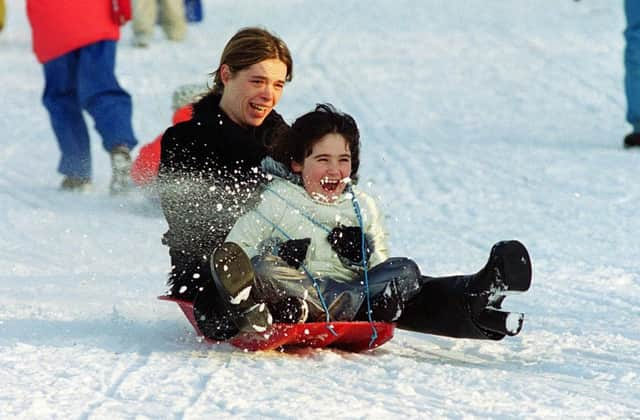Comment: Rediscovering lost family is a miracle


On a journey that took her the length and breadth of the land, she was soon to discover facts about her family history that would change her life.
Adopted shortly after she was born, Ali knew next to nothing of her birth family. At first she set about searching online but when no trace of her mother could be found, she contacted the social work department for her adoption files, and there found details of her father.
Advertisement
Hide AdAdvertisement
Hide AdUsing just these few details, and some excellent detective work, Ali succeeded in tracing her father to a nursing home in Dundee. She called the home and explained who she was. She was told that the home would have to get permission from the family for her to speak with him. The next morning a nurse called and, struggling a little for words, could only offer condolences: Ali’s father had died in the night just gone.
For Ali, it was a strange and unfamiliar sensation, to have lost something that she’d never really known she had, but that was not the end of the story. Ali phoned the registrar’s office to ask who had registered the death. “It was your sister,” they said, sounding slightly puzzled. Ali quickly explained: “We haven’t been in touch yet.” The official didn’t realise quite how true that was, and gave her the sister’s phone number and address.
The sister’s name was Carol; she was Ali’s half-sister. Carol told Ali that her father had been a married man, and that Ali’s mother, Ruby, had been his mistress. Ruby had died many years before in tragic circumstances. Pregnant and alone, she had gone into labour in her father’s home in Dundee, and, giving birth to stillborn twins, had not survived. Carol recalls the time when she was a young girl and the police visited her father to tell him the news.
Beyond this, Ali still knew very little about the woman who had been her mother. She decided to go and see her memorial plaque in Dundee Crematorium. There, alongside those of her mother, were the details of Ruby’s parents and two brothers, Ali’s uncles. With this new information, she once again turned detective. Yet again she hit the mark, discovering the whereabouts, in the United States, of the widow of one of the uncles.
Tentatively, (and with a glass of Dutch courage) Ali picked up the phone and called this aunt-in-law in America.
“Which one are you?” the woman asked. Slightly taken aback, Ali explained her situation. All she wanted was a photograph of her mother.
“They’ve all gone to your brother and sister,” came the reply.
This is not the way everyone discovers the existence of their own siblings, let alone after 60 years, but Ali took it in her stride. Still not sure whether to trust Ali, her aunt-in-law agreed to forward a letter to Ali’s brother, if Ali sent her proof of identity along with it.
Advertisement
Hide AdAdvertisement
Hide AdTwo weeks later the phone rings and Ali speaks to her brother David for the first time in her life, followed shortly by a similar call from her sister, Jo. The instant connection between each of them makes it seem impossible that they have not all known each other their lives.
Although she had gained so much in Jo and David, Ali still felt there was something missing; and indeed there was. A further trawl of the records showed the birth of another child, Pamela, in Aberdeen in 1955.
In the summer of 2012, Ali came to Birthlink, looking for help. Despite her best efforts, the location of Pamela still remained a mystery. Happily, Birthlink were able to access closed adoption records. They discovered that Pamela had been adopted and renamed as Dorothy, and was believed to be living a in Lancashire.
Initially however, making contact proved difficult. As the weeks rolled by and the letters sent out remained unanswered, it seemed that Ali and Pamela might never meet. Then one day the phone at Birthlink rings.
It’s difficult to put into words the nervousness of meeting your siblings for the first time in 60 years, the uncertainty of what may happen, or not happen. Harder still is trying to quantify the extent of the ongoing change to your life caused by the appearance of these siblings. Yet hardest of all, according to Ali, is trying to describe the joy it has brought into her life.
• Nick Lawson is third sector internships Scotland intern at Birthlink, an Edinburgh-based charity with over 100 years of experience of working with families. www.birthlink.org.uk